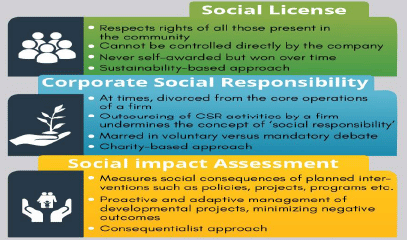Ethics - Current Affair, May 2018 - Current Affairs PDF Download
9.1. ANIMAL TESTING
• Animal Testing or Experimentation involves the use of animals to develop and test safety of new medicines, drugs, cosmetics, medical procedures and other industry products.
• Animals are subjected to pain, stress, ear-notching, genetic manipulation, physical restraint, food-and-water deprivation, asphyxiation and other manipulations.
Ethical questions and concerns involved:
• What is the moral status of an animal?
o Given the animals’ capacity to suffer, to enjoy life etc., shall we equate their moral status to that of humans?
• Do they have innate rights?
o Animals lack cognitive abilities and full autonomy, unlike humans. Hence, humans have limited obligations towards them.
• How does one distinguish between animals and infants or disabled humans?
o It is speciesism (a concept akin to racism) to experiment on animals while refraining from human experiments.
• Inability of the animals to consent.
• Animals are subjected to unnatural state of existence.
• It is also argued that there is lack of proven benefits to humans, out of these methods.
The issue invokes the following two of the Seven Sins, outlined by Gandhi ji:
• Science without humanity
• Knowledge without Character
|
Related Facts • Supporters of animal testing, such as the British Royal Society, argue that virtually every medical achievement in the 20th century relied on the use of animals in some way. |
| Speciesism: It is about giving sanction to the idea that being human is a good enough reason for human animals to have greater moral rights than non-human animals. It legitimizes the principle of Homo-centrism or Anthropo-centrism. |
|
ETHICAL DILEMMA |
||
|
Using animals as scientific resources to further |
VERSUS |
Treating animals with due regard to their existence, pain and |
|
medical science and save lives |
|
suffering as living beings, and avoiding unnecessary abuse |
|
Ends i.e. benefits for human beings |
|
Means i.e. use of 'lesser' living beings |
|
Human rights |
|
Animal rights |
|
Religious traditions allow for human dominion |
|
Religious traditions also tell us to be merciful to animals and |
|
over animals |
|
refrain from cruelty against them |
What can be done to overcome the ethical dilemma?
Using animals for research should evolve out of a strong sense of ethical introspection, which involves a careful self-analysis of one's own personal and scientific motives. Further, following would help in better treatment of animals:
• Deploying the Principle of 3Rs (see Box); this has also been adopted as a legal requirement in the European Union and other nations.
• Adopting standard guidelines for animal testing, such as:
o Monitor and improve the conditions of laboratory animals
o Use anaesthesia appropriately
o Deploy trained personnel to handle animals
• Alternatives to animal testing:
o In vitro methods i.e. using human cell cultures and tissues e.g. organs-on-a-chip
o In silico methods i.e. advanced computer-modelling
o Engagement of human volunteers e.g. micro-dosing
o Use of human-patient simulators for medical training.
|
Arguments for Animal testing |
Arguments against Animal testing |
|
|
9.2. SOCIAL LICENCE TO OPERATE (SLO)
Why in news?
Tamil Nadu government announced the closure of Sterlite copper plant in Thoothukudi post-violence that claimed 13 lives, in June 2018. The violence is a clear manifestation of loss of SLO by Sterlite Industries.
What is Social Licence (SLO)?
• Acceptance of upcoming or ongoing business/ project within the pre-existing social contracts that bind communities.
• SLO engages stakeholders, employees and the general public.
• Its nature is dynamic and non-permanent, requiring constant maintenance.
• It relates to the concepts of sustainability and triple bottom line (a measure of company’s economic value, environmental impact and degree of social sustainability).
• ‘Social’ can be said to be derived from common law, while ‘licence’ is derived from civil law – thus SLO enjoys acceptance by a vast network.




















